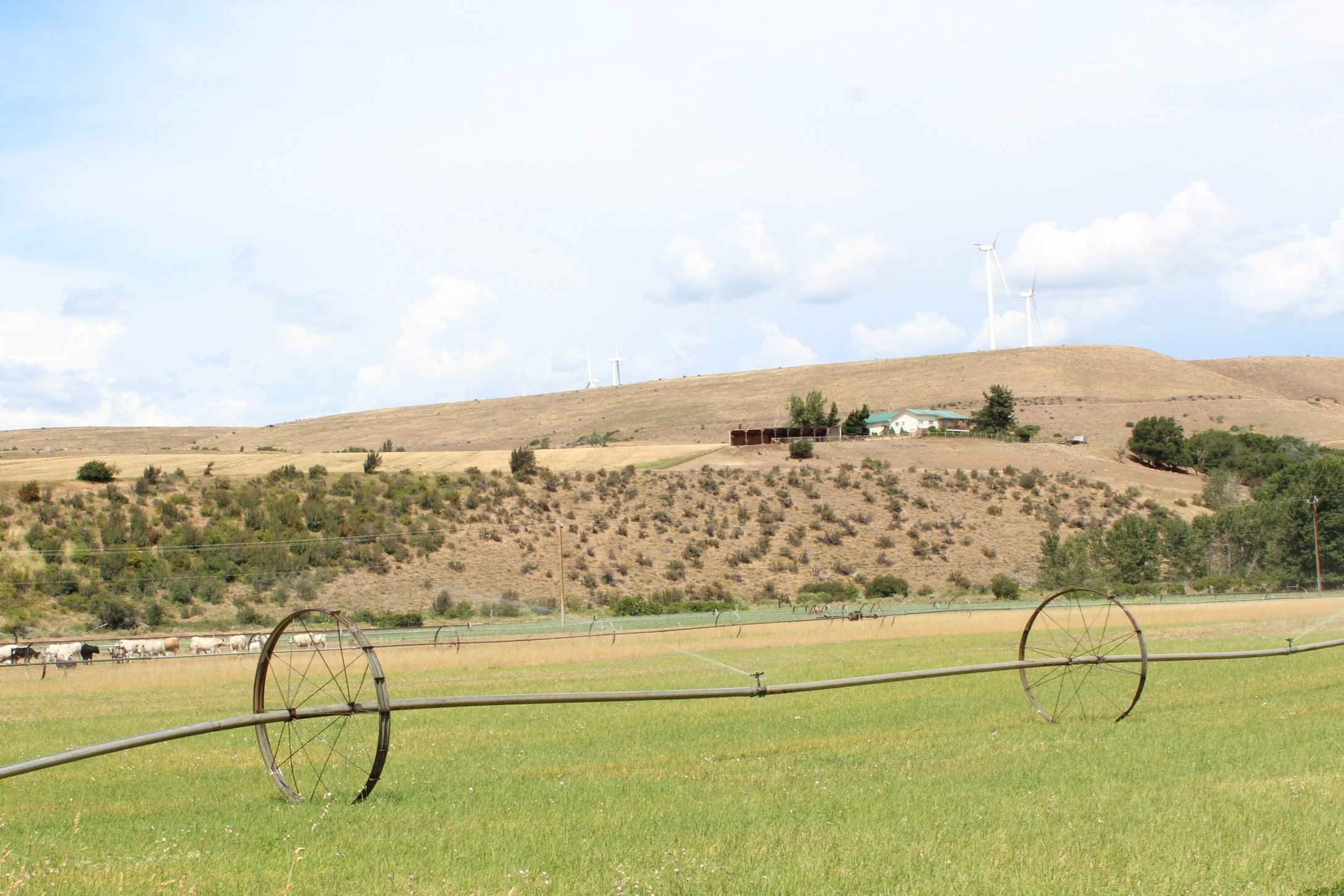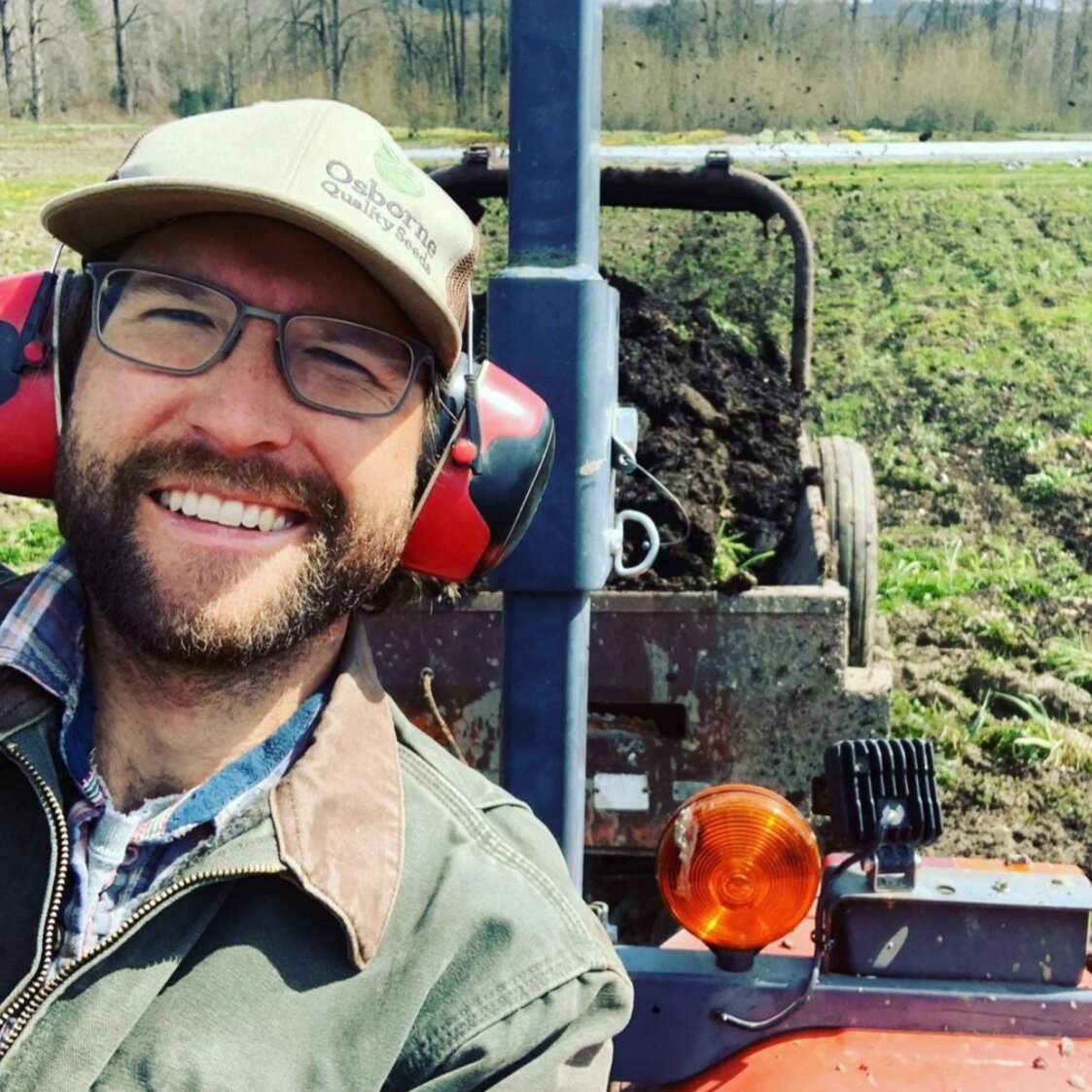
New podcast episodes coming soon, Stay tuned
Browse by topics
ALL THINGS MEAT & DAIRY
Food safety
Organic Vegetable Production
En EspaÑOL
season 1
In the first episode of Season 2, we talk with Deb Stansbery of Radix Farm about her transition to certified organic and delve into the importance of signage and labels in farm business marketing. Then we get the opportunity to chat with Colleen Donovan of the Washington State Farmers Market Association about all things farmers markets, including building trust and other reasons it’s important to make truthful claims.
In this episode of the Farm Walks Podcast, we have the pleasure of talking with Rachael Taylor-Tuller of Lost Peacock Creamery in Olympia, WA. Rachael shares her inspiring story of transition and transformation from an Air Force service member to being a full time farmer and how working with animals was her key to mental health and wellness. Later in the episode, we connect with Grant Weber of Vets on the Farm - a Veteran focused farm created by the Spokane Conservation District, aiming to support a new mission and a way for veterans to transition back into civilian life through careers in agriculture and farming.
David Bill and Faith Van De Putte of Midnight’s Farm on Lopez Island run a Department of Ecology “farm exempt" aerated static pile compost facility, raise pork and cattle, run a farm stay, and have a no-till market garden. We talk with them about their biochar research and elements of a safe on-farm compost system. Later in the episode, we check in with Nate Stacey, soil scientist and Farm Program Director at Tilth Alliance and delve into more things compost!
Bradley and Lisha Newhall run Windy N Ranch, a certified organic diversified livestock operation and an on-farm butcher shop. We get to talk to them about their reasoning for going certified organic and how slaughter and wrap and pack challenges pushed them to pursue processing their own meat. Later in the episode, we talk with Matthew Cox of Green Bow Farm where we learn more about the USDA FSIS exemption and how they are now processing and marketing their meats through their own farmstand.
Chelsey and Ben Mesman are a fifth generation husband/wife farming team and, with Ben’s father Alan, are running Mesman Farm, a certified organic dairy operation and Organic Valley Co-op Member in La Conner, WA. We get to chat about how they run their operation, what it takes to be a dairy farmer these days, and learn about their robotic milker! Later in the episode, we connect with Ellie Stone, who works in the Marketing and Sales department at Organic Valley. She shares more about the beginnings of the Organic Valley Co-op and how it’s grown to support 1800 farm families throughout the nation.
In this episode, we talk with Val Wall at Whitehorse Meadows Farm about her most significant pest and wildlife issues and how she protects her crops from animal intrusion and mitigates contamination issues when they arise. You’ll gain direct insight into her trials and tribulations and how she built an effective netting structure, ultimately increasing her marketable yield. Later, Karen Ullmann at the Washington State Department of Agriculture will discuss what animal mitigation practices FDA (the Food and Drug Administration) requires under the Produce Safety Rule, one of seven rules under FSMA or the Food Safety Modernization Act. The rule establishes federal, scientific-based standards for minimizing microbial contamination and the risk of foodborne illness linked to fruits and vegetables.
In this episode, we are joined by Isaac Jahns of Big Sage Organics, Brian Estes of LINC Malt, and Matthew Hoffman of Westland Distillery and we follow the journey of a barley crop along the organic grain supply chain from farm to malthouse to distillery. We cover a lot of ground in this episode, discussing the formation of a valuable partnership, barley and its role in soil health, and elements that contribute to unique flavors in craft whiskey.
Bryan Mesa of De La Mesa Farms runs a 2.5 acre no-till, regenerative market garden in Tacoma, WA with his family. In this episode, we talk with Bryan about moving their farm all the way from Hawaii during the pandemic and the food safety factors he considered when setting up the farm on the new property. Later in the episode, we connect with Anita Adalja of Ashokra Farm who is a farmer and trained USDA GAP Auditor and also works on food safety trainings for small growers. Anita brings up important considerations for wash/pack spaces and tips for making farms more food safe.
Hilario Álvarez y su familia dirigen Alvarez Organic Farms, una granja de vegetales diversificados orgánicos certificados en Mabton, WA, donde cultivan 200 variedades de pimientos y 300 variedades de verduras. Han estado en el negocio agrícola durante más de 30 años y hablamos con ellos sobre cómo su granja ha cambiado recientemente, incluso durante la pandemia de COVID-19, específicamente en lo que respecta a la gestión y las ventas de los empleados. Más adelante en el episodio hablamos con Davis Blasini y Ricardo Orellana de la Alianza de la Inocuidad Alimentaria (Produce Safety Alliance) sobre la importancia de la inocuidad alimentaria, las nuevas regulaciones y cómo puede abrir puertas para nuevos mercados.
Season 3
Browse By Season
In this first episode of the Farm Walks Podcast, we’re talkin’ all things niche meats marketing with Casey Smith of BCS Livestock out of Winthrop, WA. Tune in to learn about the various sheep and lamb products and the diverse marketing channels created by BCS Livestock’s whole animal approach. We also take a deep dive into the processing methods they are using for their niche meats business model, including scaling from WSDA custom exemption to USDA inspection. Keep listening till the end to learn more about efforts to create a USDA processing option in Okanogan County with Alyssa Jumars, of the Methow Conservancy.
In this episode of the Farm Walks Podcast, we get to talk with Heidi and Mike Peroni of Boistfort Valley Farm in Curtis, WA. We chew through all things organic certification. We learn why they decided organic certification was right for them and break down the certification process by covering everything from required farming practices and recordkeeping strategies to annual inspections and helpful resources. We then hear from Brenda Book, WSDA Organic Program Manager as she shares the history of the WSDA Organic Program and addresses common questions about organic certification.
Pablo Silvia was born in Yucacani, a small town in Guerrero, Mexico. At the age of 14, he arrived in California where he started working at a farm harvesting strawberries. After a couple years of working on farms in California, he moved up North to Mount Vernon, Washington, where he worked on strawberry farms for the next ten years. Frustrated with the long work days and with the toxic spraying practices of these farms, he started working for Bow Hill Blueberries in 2012. While at Bow Hill, Pablo acquired the skills necessary to manage and sustain an organic berry farm and in 2017, he harnessed those skills and started his own business.
In this episode of the Farm Walks Podcast, we dive into direct-to-consumer marketing with Emily Tzeng of Local Color Farm and Fiber in Puyallup, WA. We talk about developing marketing channels, building a brand, and the ways she adapted her CSA and farmers market approach during COVID. We then chat with Matt Kelly, Executive Director of the Queen Anne Farmers Market about farmers market operations during COVID and what’s in store for the 2021 season.
In this episode of the Farm Walks Podcast, we catch up with Emily Asmus of Welcome Table Farm in Walla Walla, WA to talk about their direct-to-consumer marketing channels including their customizable CSA, farm stand, and online shop. Emily also addresses farming over 40 and her lessons learned for managing body care, mechanization, hiring, vacation, and working with a spouse after two decades of labor. Later in the episode, we have a chance to chat with Simon Huntley, CEO and founder of the online sales and distribution platform Harvie about the ins and outs of the e-commerce website.
In this episode of the Farm Walks Podcast, we have the opportunity to talk with Bil Thorn of Sky Island Farm in Humptulips, WA about low-risk marketing outlets and food safety best practices for direct-to-consumer marketing and wholesale outlets. Bil also addresses innovative ways to find farmland and his approach to scaling up their business by expanding their market reach. To close out this episode, we get to chat with Laura Raymond, WSDA Regional Markets Program Manager. Laura shares about innovative marketing strategies and safety precautions employed by direct-marketing farms during COVID to provide our communities with local food while keeping farmers, farm workers, and consumers safe.
In this episode of the Farm Walks Podcast, we get to sit down with Ryan Lichttenegger of Steel Wheel Farm in Fall City, WA to talk about developing COVID-specific employee training protocols and discuss recent updates to their wash/pack facility to help prepare them for GAP/FSMA compliance. Ryan will also share about his love of vintage farm equipment and Steel Wheel Farm’s approach to completing infrastructure projects on leased land and some of the marketing pivots they’ve made during COVID. Later in this episode, we get to chat with Andy Chamberlin, Agricultural Engineering Technician at the University of Vermont Extension about DIY hygienic design.
In this BONUS episode Farm Walks Podcast, we talk about niche meat-marketing with life-long farmer Tina Timmerman of Oberg Brothers Natural Beef in Tonasket, WA. Tina shares the thought process behind transitioning some of their processing to USDA Inspection and outlines important tips to building a positive relationship with your processor. We also go into some of the challenges and opportunities of selling beef at farmers markets. Later in the episode, we talk with Kira Olsen of Smokey Ridge Meats about the processing side of the value-chain, including tips for building a good relationship with your processor.




















